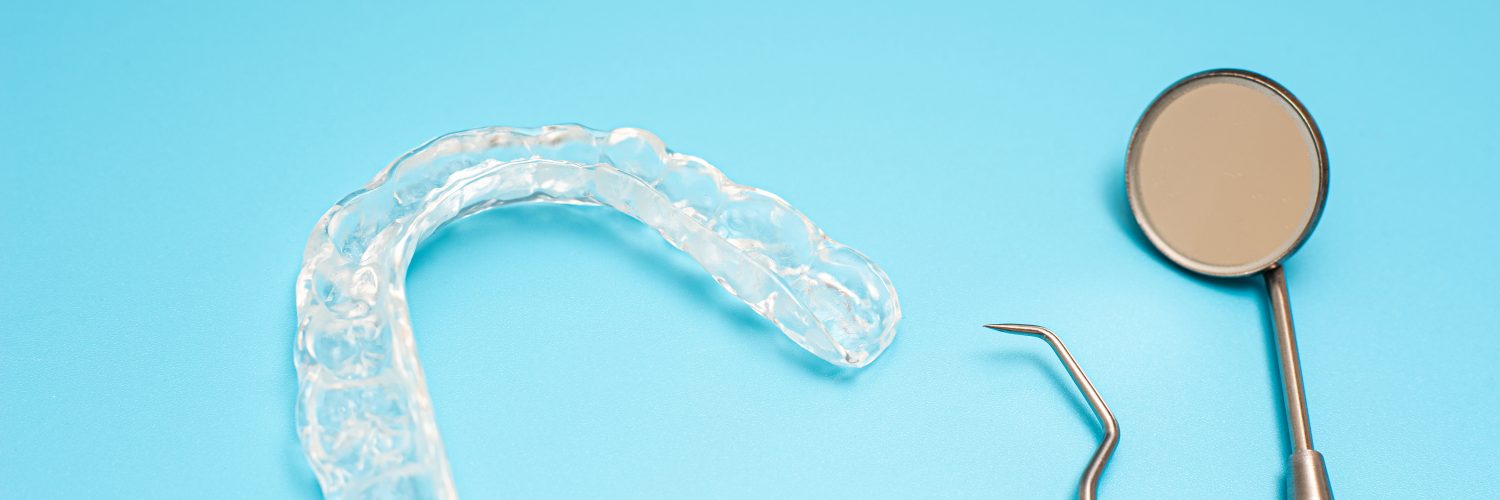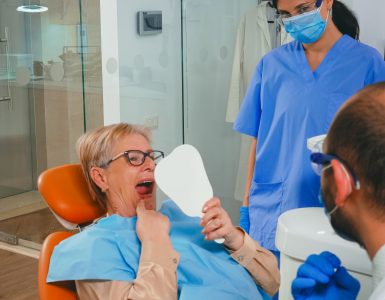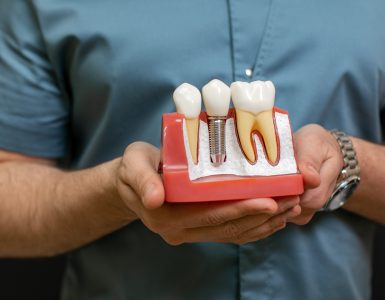You may be suffering from a common sleep-related condition, known as bruxism, that can be painful and destructive to your teeth, without being aware of it.
What is bruxism?
Bruxism is the involuntary clenching and grinding of the teeth that usually occurs during sleep, although some people do it when they are awake. Some people may do it from time to time, but a small percentage of us do it regularly and long term it can have a serious effect on your teeth. Usually, the person grinding their teeth in their sleep isn’t aware they are doing it until someone else tells them or they experience some symptoms.
What causes it?
There are many possible reasons for tooth grinding, but the exact cause is unknown. It’s thought that the main cause could be as a result of stress and anxiety, but it could also be as a result of issues like crooked or missing teeth, an abnormal bite, use of antidepressants or other medicines, some illnesses, caffeine, or alcohol and drug use. Clenching and grinding of the teeth are sometimes caused by a sleep disorder called sleep apnoea.
What are the symptoms?
If you grind or clench your teeth, you may find you experience these symptoms upon waking and during the day:
- aching teeth, particularly first thing in the morning after waking
- a dull headache, sore jaws and/or ear pain
- aching and stiffness in the face and temples, particularly first thing in the morning after waking
- jaw pain whilst eating, particularly during breakfast
- wearing down of the teeth
- sensitivity to hot and cold foods and drinks
- intense jaw clenching
- tooth indentations on the tongue
- raised tissue on the inside of the cheek caused by biting.
What problems does it cause?
Because teeth grinding and clenching puts a lot of pressure on your teeth, apart from the symptoms above, there is the possibility of some serious damage being caused to your teeth and jaw. It can cause cracking to the tooth enamel, possible fracturing of the tooth and the breaking of things like crowns and fillings. In some rare cases it could result in loss of a tooth. It could cause pain when you bite down due to the pressure causing the fibre that attaches the tooth to the bone becoming inflamed.
It can also put strain on the jaw joint (temporomandibular joint or TMJ) and jaw muscles causing pain and limiting movement. It is possible that people could end up having issues with sleeping as well. Pain may cause you to clench your jaw even harder, making matters worse.
How can it be treated?
Because teeth grinding and clenching can have both psychological and physical causes, possible treatments options could include:
- If the cause of your teeth grinding is emotional, your dentist may refer you to your GP to help manage your stress. You may be referred to some counselling and stress management therapy, learn some relaxation techniques such as meditation, and work on developing good sleep hygiene.
- Your dentist will be able to identify and treat any causes such as overly-high fillings or crooked teeth and will be able to repair any damage done.
Whilst it won’t prevent you grinding your teeth or clenching your jaw, a custom-made mouth guard (also known as a night guard, bite splint, or occlusal splint) will put a protective barrier between your teeth helping to lighten the tension and cushion the muscles in the jaw.
You may be offered short term medication, such as a muscle relaxant or referred to biofeedback therapy or neuromuscular treatment. It is also important to assess and treat medical conditions or sleep disorders, such as sleep apnoea, that could be a risk factor, make good lifestyle and diet choices and get regular exercise.




